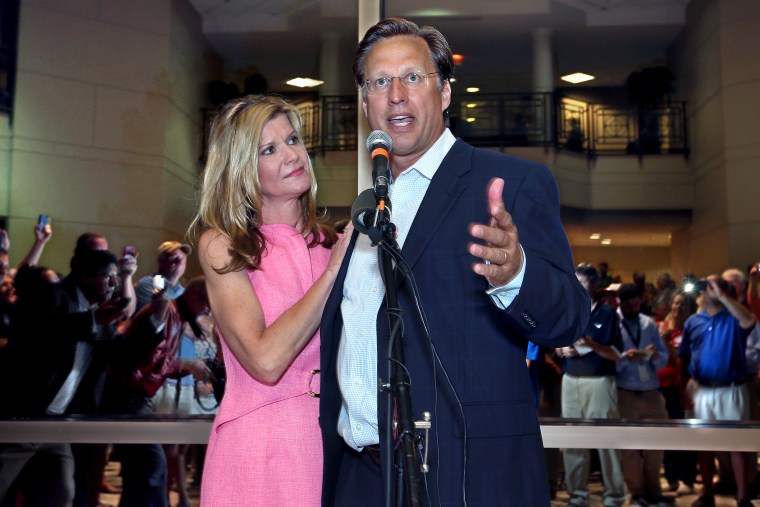Washington insiders aren't the only ones asking "Who is David Brat?" after his unexpected primary victory Tuesday night over House Majority Leader Eric Cantor. His fellow economists are also unsure what to make of the college professor.
Brat chairs the economics department at Randolph-Macon College, and has an extensive curriculum vitae documenting two decades of academic research. But none of that research has appeared in any mainstream economic journals that reach a national audience, and little if any of his published work is peer-reviewed.
A sampling of Brat’s work reveals a preoccupation with translating Max Weber’s theory of the Protestant work ethic into quantitative economics. In his 1905 book "The Protestant Ethic and the Spirit of Capitalism," Weber traced the evolution of capitalism back to the Protestant Reformation, and particularly to the Calvinism that thrived in Northern Europe. More than a century ago, Weber concluded that the religious content had drained away from the Protestant ethic. Brat appears to reject that conclusion, arguing that Protestant faith continues to animate economic growth.
Brat’s interest in the role of Protestantism in creating prosperity dates back to his 1996 dissertation, “Human Capital, Religion, and Economic Growth,” which argues that Protestantism contributed to a rapid advancement of science in Protestant Germany and Great Britain in the 19th century that was unmatched by Catholic France. In large part, Brat argues, this is because France’s government (like its dominant faith) was more centralized. Even Brat, though, has to concede that France led these three nations in scientific achievement early in the 19th century and remained Great Britain’s equal at mid-century, before Germany eclipsed both France and Germany after about 1870. (Brat himself, incidentally, is Roman Catholic, according to his campaign website.)
"He seems like a guy working very hard to impose his belief system on the data."'
Brat picks up the Weberian theme in his 2004 paper, “Economic Growth and Institutions: The Rise and Fall of the Protestant Ethic?” In it, Brat argues, uncontroversially, that “institutions such as religion, democracy and government anti-diversion policies all significantly enhance a country’s long-run economic performance.” More controversially, Brat then goes on to conclude that “the religion variable may be the strongest ex ante, exogenous [i.e., external and unaffected by other factors] institutional variable in the literature.”
“I have no idea what to make of all that,” Jared Bernstein of Washington’s Center on Budget and Policy Priorities said in an e-mail. But “there’s a solid line of thought—one to which I subscribe (and suspect you do as well)—which places heavy weight on institutions in economic outcomes, including unions, trading regimes, the Fed, political access, etc.” (Don’t hold your breath for Brat to tout the importance of labor unions.) The difficulty lies in quantifying the role played by Protestantism, which isn’t one faith but many.
“I am happy to believe that institutions matter a lot,” Georgetown economist Harry Holzer e-mailed me, “and that religion might matter too. But his statistical models are very simple-minded ... In these small-sample regressions, how do we know that religion or the other variables are really ‘exogenous’ and not just correlated with other characteristics of countries that are doing well? If Christianity is so crucial, what explains the explosion of growth in China, India and other Asian countries (did they experience an explosion of Christianity that I missed)?”
“He seems like a guy working very hard to impose his belief system on the data,” Holzer elaborated in a phone interview. “A good journal is not going to publish the kind of statistical work he did because it’s so low in quality.”
